MainStage ’24
18 || 22 Luglio 2024
18 Luglio | Paolo Fresu Trio
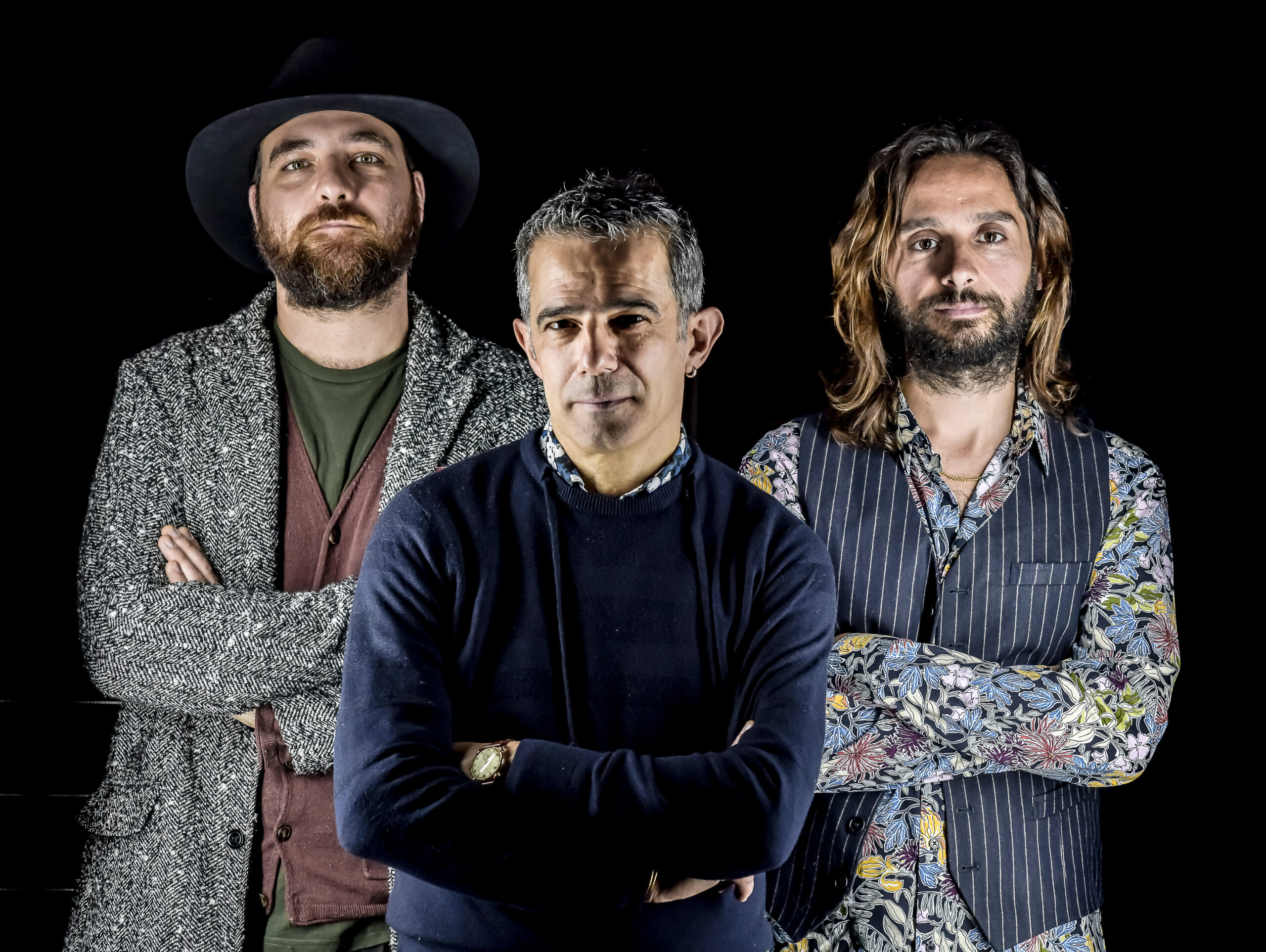
Paolo Fresu, tromba, flicorno, effetti – Dino Rubino, piano e flicorno – Marco Bardoscia, contrabbasso
C’è qualcosa di evocativo e quasi di spirituale in un trio che sfrutta la grande capacità empatica dei suoi componenti per comporre arte e comunicare vita. È quello che succede quando parliamo di Paolo Fresu, Dino Rubino e Marco Bardoscia. Un trio inedito che si confronta con le reciproche esperienze dirette (Paolo e Marco suonano insieme nel progetto cameristico “Altissima Luce”, e spesso in trio con Daniele Di Bonaventura quando il duo di Paolo con il celebre bandoneonista diventa, appunto, un trio) e con i diversi stili che caratterizzano i singoli musicisti; diversi ma perfettamente assimilabili e complementari. Un dialogo a tre voci raffinato, di grande impatto emotivo e intellettivo che si compone del suono caldo e corposo e della mente vivida e creativa di Fresu, delle linee potenti e coinvolgenti del contrabbasso di Bardoscia e del pianismo elegante e vibrante di Rubino. Il trio è stato voluto in questa forma da Fresu per l’avventura teatrale del progetto “Tempo di Chet – La versione di Chet Baker” prodotto dal Teatro Stabile di Bolzano diretto da Walter Zambaldi e per la regia di Leo Muscato. Tutte le musiche, composte da Fresu, sono prodotte dal trio e appaiono anche sul cd “Tempo di Chet”, pubblicato da Tǔk Music etichetta discografica del trombettista sardo, fondamentalmente dedicata ai nuovi talenti italiani, delle quali fila sia Bardoscia che Rubino fanno parte integrante da diversi anni. PAOLO FRESU La banda del paese e i maggiori premi internazionali, la campagna sarda e i dischi, la scoperta del jazz e le mille collaborazioni, l’amore per le piccole cose e Parigi. Esiste davvero poca gente capace di mettere insieme un tale abbecedario di elementi e trasformarlo in un’incredibile e veloce crescita stilistica. Paolo Fresu c’è riuscito proprio in un paese come l’Italia dove – per troppo tempo – la cultura jazz era conosciuta quanto Shakespeare o le tele di Matisse, dove Louis Armstrong è stato poco più che fenomeno da baraccone d’insane vetrine sanremesi e Miles Davis scoperto “nero” e bravo ben dopo gli anni di massima creatività. La “magia” sta nell’immensa naturalezza di un uomo che, come pochi altri, è riuscito a trasportare il più profondo significato della sua appunto magica terra nella più preziosa e libera delle arti. A questo punto della sua fortunata e lunga carriera, non serve più enumerare incisioni, premi ed esperienze varie che l’hanno imposto a livello internazionale e che fanno sistematicamente ed ecumenicamente amare la sua musica: dentro al suono della sua tromba c’è la linfa che ha dato lustro alla nouvelle vague del jazz europeo, la profondità di un pensiero non solo musicale, la generosità che lo vuole “naturalmente” nel posto giusto al momento giusto ma, soprattutto, l’enorme e inesauribile passione che lo sorregge da sempre. Il presente di Paolo è – come al solito – turbinoso, degno dell’artista onnivoro e creativo che tutti riconoscono in lui. Oggi (a parte un sorprendente lato letterario che è sfociato nella pubblicazione di alcuni interessanti lavori editoriali e l’importante consegna della Laurea Honoris Causa dell’Università la Bicocca di Milano in Psicologia dei processi sociali, decisionali e dei comportamenti economici) è fatto del suo storico quintetto che ha girato la boa dei tre decenni di piena collaborazione e stima reciproca, ma è anche quello del quartetto “Devil”, che riscatta a pieno merito i successi del celebrato “Angel” che impose Paolo all’attenzione europea qualche lustro fa. Crescono poi le importanti realtà contemporanee. Solo alcune di queste sono il duo con Uri Caine, la collaborazione con Carla Bley (e Steve Swallow) e il fortunato incontro con Ralph Towner che ha fatto da ponte all’ingresso del nome di Paolo nell’entourage della celebrata e nobile etichetta ECM, che – oltre al lavoro con Pannonica Srl – Corso Italia, 22 – 39100 – Bolzano (I) – Tel: +39 (0471) 400193 – info@pannonica.it – www.pannonica.it Towner – ha poi pubblicato il bellissimo lavoro Mistico Mediterraneo con Daniele Di Bonaventura e il coro polifonico corso A Filetta e il disco in duo con il bandoneonista marchigiano. Il suo presente più attuale lo vede attivo, in ottica più esterofila, in trio con Richard Galliano e il pianista svedese Jan Lundgren (“Mare Nostrum”) e in diverse nuove avventure con importanti nomi dell’entourage jazzistico contemporaneo quali Omar Sosa, Gianluca Petrella e – ancora – con Lars Danielsson, Eivind Aarset, Chano Dominguez, Oren Marshall o Arild Andersen. Interessanti sono poi i progetti con alcuni grandi nomi del mondo letterario e teatrale italiano (Ascanio Celestini, Lella Costa, Stefano Benni, Alessandro Bergonzoni, Giuseppe Battiston) oltre, infine, a una nuova serie di piccole ma importanti collaborazioni con la musica “intelligente” delle frange popolari italiane. Musica per il Cinema e “progetti speciali” come il suo straordinario “a solo” teatrale chiudono il cerchio insieme alla piccola grande e folle avventura che l’ha portato a festeggiare nel 2011 i suoi 50 anni con 50 concerti, in 50 giorni consecutivi, con 50 formazioni e progetti diversi di giorno in giorno in 50 capolavori paesaggistici della sua Sardegna. Manca all’appello anche l’importante serie di progetti dedicata a diversi aspetti del mondo “classico” tout-court che, grazie a lavori ad hoc, sta riservando belle sorprese con musicisti capaci di “guardare avanti” oppure, infine, il bellissimo nuovo lavoro di promozione cha Paolo sta portando avanti nei confronti di molti giovani leoni dell’entourage jazzistico contemporaneo attraverso le possibilità offerte loro grazie alla sua nuova etichetta Tǔk Music costruita per guardare al futuro. MARCO BARDOSCIA Marco Bardoscia, classe 1982, inizia lo studio della chitarra all’età di 10 anni. Dopo pochi mesi, però, scopre il basso elettrico e si dedica allo studio di quest’ultimo prima prendendo lezioni da un musicista del proprio paese e poi autonomamente, successivamente studierà per un periodo con Massimo Moriconi. A quindici anni si iscrive alla classe di Contrabbasso del conservatorio Tito Schipa di Lecce dove conseguirà il diploma nel 2005 sotto la guida del M° Leonardo Presicci. Durante gli anni del conservatorio va maturando una forte passione per la musica Afroamericana, comincia a trascrivere i grandi maestri del jazz e studia gli standards, pane quotidiano di ogni jazzista, colleziona tra l’altro esperienze musicali di vario tipo spaziando dal Rock al Pop alla World Music sino alla musica classica e al Jazz suonando in molti festival in Italia, Belgio, Germania, Kosovo, Marocco, Olanda, Grecia, Turchia, Irlanda e Francia. Nel 2002 frequenta le clinics di Umbria Jazz e vince il premio al talento emesso dal Berklee College Of Music di Boston (USA) e viene inoltre invitato come artista nell’ambito della rassegna Umbria Jazz Winter dello stesso anno. Nel 2005 è finalista con il Nicola Andrioli quartet nel concorso internazionale Ethno- Jazz svoltosi a Milano vincendo il secondo premio e la pubblicazione dei due brani eseguiti nella finale. Nel 2006 vince il premio Jimmy Woode come miglior contrabbassista (premiato da una giuria composta tra gli altri da Buster Williams e Giorgio Rosciglione) nel concorso Ronciglione jazz festival nel quale si classifica terzo con il Francesco Saguto Quintet. Nel 2007 pubblica il suo primo disco da leader dal titolo “Opening” con ospite Gianluca Petrella, e ad Aprile 2011 il secondo: “The Dreamer”, prodotto dalla My favorite Records. Vanta collaborazioni di rilievo nel panorama jazzistico europeo, Paolo Fresu, Gianluca Petrella, Ernst Reijseger, Perico Sambeat, Raffaele Casarano, Luca Aquino, Banda municipal de Santiago de Cuba sono alcuni dei nomi con cui ha collaborato. DINO RUBINO Dino Rubino, classe 1980, inizia lo studio del pianoforte (a 11 anni) presso il Conservatorio “V. Bellini” di Catania, ma, dopo appena tre anni, dopo aver visto suonare Tom Harrell, decide di abbandonarlo per intraprendere lo studio della tromba. Nel 1995 frequenta i seminari di Siena Jazz, ottenendo una borsa di studio per frequentare l’anno successivo. Nel 1998 vince il premio Massimo Urbani come miglior talento nazionale emergente. Riconoscimento che gli aprirà alcune importanti porte; nel 2000, infatti, viene chiamato da Furio Di Castri a far parte al progetto “Giovani artisti d’Europa” – progetto che durerà un paio d’anni tenendo concerti Torino, Sarajevo, Israele, Stoccolma. Ricomincia a studiare il pianoforte, strumento che – contemporaneamente ala tromba – non abbandonerà più. Nel 2008 entra a far parte del gruppo di Francesco Cafiso, con cui suonerà per cinque anni, incidendo sei dischi. Nel 2009 si diploma in pianoforte e inizia la specialistica in jazz al Consevatorio A.Corelli di Messina, che concluderà all’inizio del 2012. Nel 2011 viene chiamato da Paolo Fresu per entrare a far parte della sua etichetta discografica “Tùk Music”. Nel luglio del 2014 è ospite – per una residenza mensile – dell’Istituto di Cultura Italiano di Parigi all’interno della rassegna “Les promesses de l’Art”. Da quel momento inizia a collaborare con musicisti italiani che vivono Pannonica Srl – Corso Italia, 22 – 39100 – Bolzano (I) – Tel: +39 (0471) 400193 – info@pannonica.it – www.pannonica.it da anni a Parigi tra i quali Aldo Romano e Riccardo Del Fra. Un’esperienza incisiva che ha portato Dino a trasferirsi a Parigi, dove vive in questo momento. Attualmente è attivo con il suo progetto in solo, “Roaming Heart”, e leader di “On Air Trio”, formazione con Paolino Dalla Porta ed Enzo Zirilli, e dell’ottetto “Kairòs” con Giuseppe Mirabella, Riccardo Fioravanti, Adam Nussbaum più un ensemble di quattro fiati. Ha registrato quattro dischi da leader: “Mi sono innamorato di Te” per l’etichetta Giapponese “Venus”, “Zenzi” e “Kairòs” per la Tùk Music di Paolo Fresu e il recentissimo piano solo registrato a Parigi pubblicato a Maggio del 2015 coprodotto dalla “Tùk Music” e dall’etichetta francese “Bonsai Music”. Nel corso degli anni ha suonato in moltissimi Festival in Italia e nel mondo.
19 Luglio | Avishai Cohen
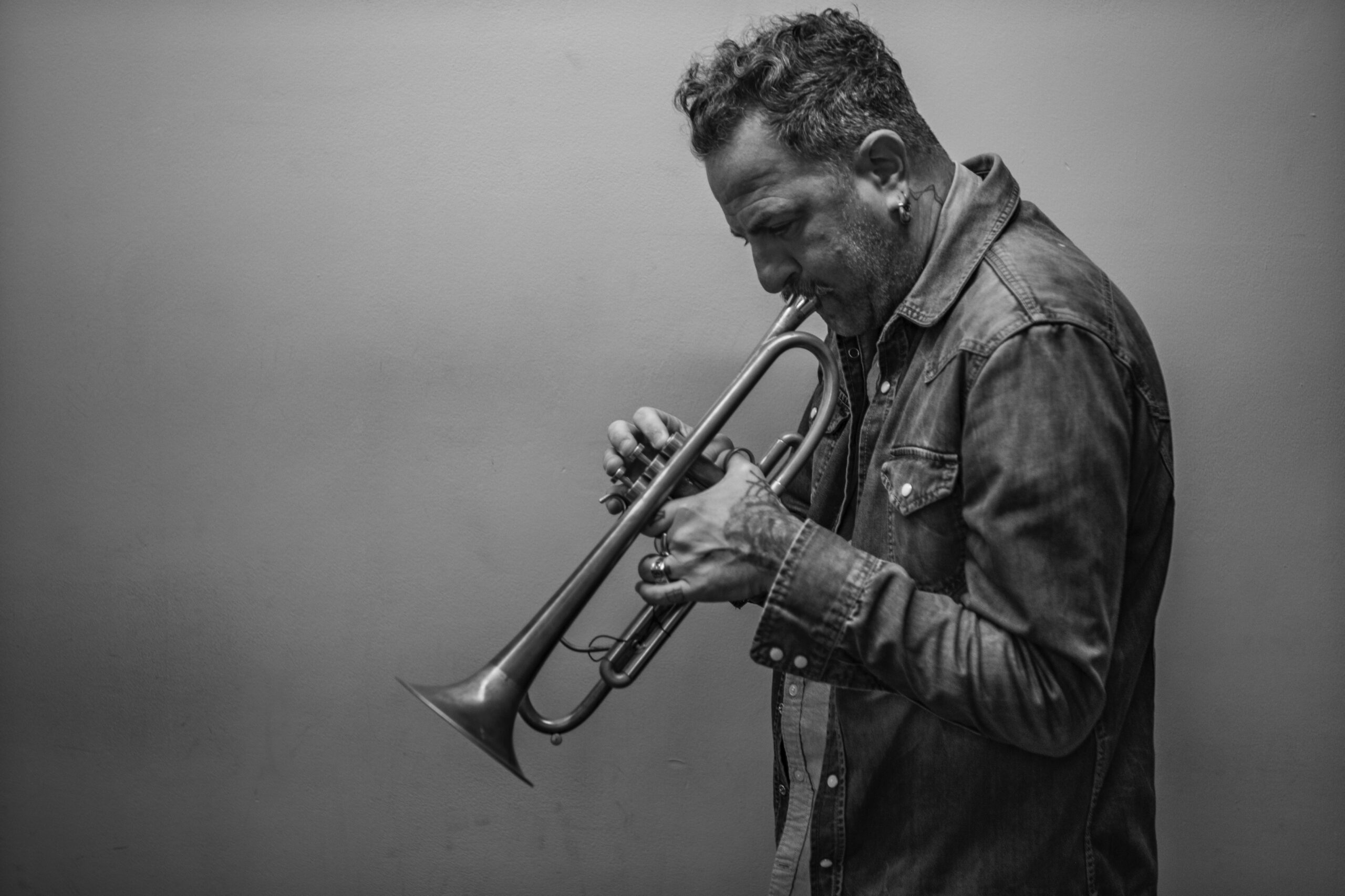
“Cohen is a multicultural jazz musician, among whose ancestors is Miles Davis. Like Davis, he can make the trumpet a vehicle for uttering the most poignant human cries.”
– Thomas Conrad, JazzTimes
There is a searching, yearning quality to Naked Truth, and a raw beauty and vulnerability in Avishai Cohen’s trumpet sound throughout. Very much music-of-the moment, found and shaped in the course of a remarkable recording session in the South of France, Naked Truth takes the form of an extemporaneous suite. For most of its length the Israeli trumpeter painstakingly leads the way, closely shadowed by his long-time comrades — pianist Yonathan Avishai, bassist Barak Mori and drummer Ziv Ravitz — who share an intuitive understanding, hyper alert to the music’s subtly-changing emphases. At the album’s conclusion, Cohen recites “Departure”, a poem by Zelda Schneurson Mishkovsky, whose themes of renunciation, acceptance and letting go seem optimally-attuned to the mood of the music.
Avishai describes the album as the outcome of a “two-year meditation. I had been sitting with the main motif of Naked Truth since the start of Covid. The eight note motif you hear at the start of Part II was the beginning of the whole process. I wouldn’t say the motif has been ‘haunting’ me exactly, but it’s been accompanying me through this whole period and everything that I came to assemble for the album revolved around those eight notes and all the possibilities within them.
“And as I explored that, a lot of other questions were coming up, as I asked myself what do I want to say in the music, what do I need to say. And the process also came to reflect a personal, emotional journey.” There were two parallel stories unfolding, he elaborates, the search for the compositional framework, and something more existential.
“With earlier albums, like Into The Silence, the music was very much about the compositions. But with this one, the melodies somehow didn’t want to be written down before the recording. And at the same time, the story is definitely not about the solos…”
Cohen had just one rehearsal and one “mini-concert” with Yonathan Avishai and Barak Mori prior to the session at Studios La Buissonne. “The discussion about what to play and what not to play evolved out of that.” As one reference point, Avishai asked his comrades to listen to recordings of bansuri flute master Harisprasad Chaurasia, “who to me conveys so well the ability to play everything and also to play nothing except the essential.” Avishai also discussed trimming percussive details to a minimum with drummer Ziv Ravitz, more than a matter of simply playing less, this was a call to enter the heightened emotional tone and focus of the music (see Part IV here).
With everything stripped back to emphasize the soul-baring spirit of Naked Truth, small instrumental details have a large impact. When Avishai finally switches from crespuscular walking-on-eggshells muted trumpet to open horn playing in Part III, for instance, it is as if a searchlight is suddenly illuminating the music…
“Departure”, a poem by Israeli writer Zelda Schneurson Mishkovsky (1914.1984), is a piece set to music and premiered by Avishai in a project with Danilo Pérez and Chris Potter and subsequently explored further in other Cohen group contexts. “When I first read that poem I was blown away by it.” With its reflections on mortality and its almost Buddhistic balancing (Zelda was Orthodox Jewish) of non-attachment and gratitude and wonder it makes an apt conclusion for Naked Truth. In the present realization, a logical ending, musically, too.
Naked Truth was recorded at Studios La Buissonne in Pernes-les-Fontaines, in September 2021, and produced by Manfred Eicher.
20 Luglio | Flo
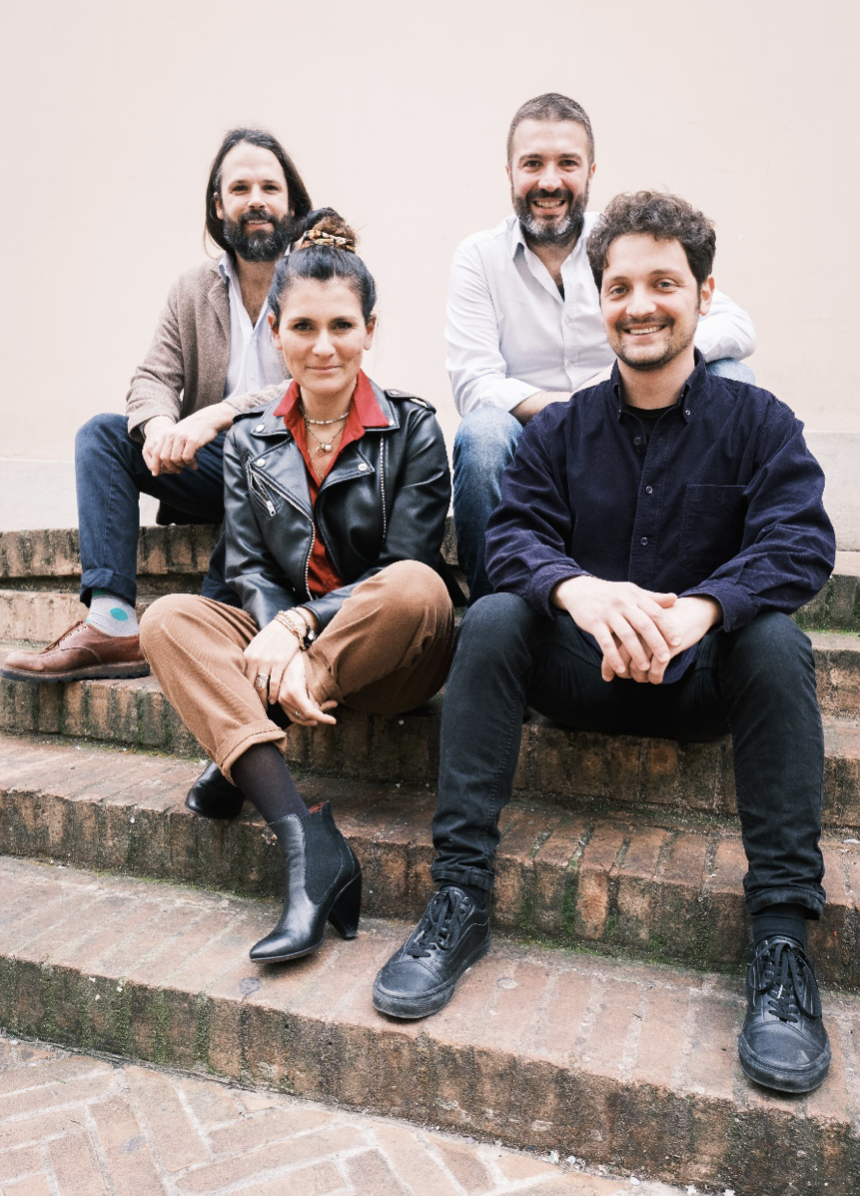
ANDA
Canzoni di fuga e meraviglia
FLO – voce
ENRICO ZANISI – piano
JOE REHMER – contrabasso
ALESSANDRO PATERNESI – batteria
Anda è l’esortazione al cammino, alla fuga, alla scoperta.
Sono questi i protagonisti del concerto di Flo e Enrico Zanisi: cantautrice e attrice lei, jazzista raffinatissimo lui. Un viaggio profondo e pieno di leggerezza, dove il jazz s’intreccia alla musica migrante del sud del mondo e alla canzone d’autore di esuli e camminanti.
Un concerto in cui musica e parole raccontano storie di viaggi affascinanti: quella dell’illustre immigrato Carlos Gardel, padre del tango argentino, quella del Lusitania, il transatlantico più grande e veloce del mondo, affondato in soli otto minuti alla sua prima traversata. Momenti evocativi come il canto sefardita dei popoli erranti, si affiancano a vivaci incursioni nel repertorio moderno, sotto il segno dell’incontro e della contaminazione di stili e linguaggi.
A completare questo elogio alla fuga – a tratti fisica e a tratti metaforica – non mancano i brani originali di Flo, considerata dalla critica una delle penne più originali della sua generazione. Un percorso elegante e funambolico in cui le doti istrioniche della chansonnier napoletana, che canta, recita e racconta, si fondono con le imprevedibili trame jazzistiche del sorprendente Enrico Zanisi, affiancato da Joe Rehmer al contrabbasso e da Alessandro Paternesi alla batteria.
Un concerto che fa navigare il cuore e la fantasia attraverso rotte a tratti familiari e a tratti inesplorate; che si rivolge all’orecchio dei jazzofili, ma non solo, perché Flo, col suo modo di decantare, intimo e teatrale al tempo stesso, riesce a portare per mano chiunque abbia voglia di lasciarsi andare alle emozioni di un viaggio ricco di meraviglia.
Flo, cantautrice, autrice e attrice di teatro, Flo è un’imprevedibile entertainer e una raffinata cantastorie. Un’ artista che seduce grazie ad una vocalità viscerale e una scrittura originale e suadente. Instancabile ricercatrice musicale, viaggia alla continua ricerca di storie, tradizioni e contaminazioni.
Le sue performance sono ritmo, racconto, ritualità: un affascinante equilibrio tra l’estasi, la malinconia e la teatralità tipiche del Sud Italia.
Laureata col massimo dei voti in canto e coralità al Conservatorio S. Pietro a Majella di Napoli, debutta giovanissima nel mondo del teatro musicale, sotto l’egida di Claudio Mattone. Nel 2014 esce in Europa il suo primo disco “D’AMORE E DI ALTRE COSE IRREVERSIBILI” che, accolto con grande entusiasmo dalla critica e dal pubblico, otterrà alcuni tra i più importanti riconoscimenti italiani (Premio Musicultura 2014, Premio “Radio Rai 1” per la Migliore musica a Musicultura 2014, Premio Assoluto Andrea Parodi 2014, migliore musica al Premio Parodi 2014, Miglior arrangiamento al Premio Parodi 2014).
A due anni di distanza incide “IL MESE DEL ROSARIO” (Miglior testo al premio Bianca d’Aponte 2014, Premio Musicultura 2015, tra i candidati alle Targhe Tenco nelle categorie “Miglior disco dell’anno” e “Miglior canzone”).
Nel 2018 esce il suo terzo disco “LA MENTIROSA”, che la consacra tra le più raffinate cantautrici della cosiddetta World music d’autore. Alcuni tra i più importanti giornali musicali d’Europa (fRoots, Songlines etc…), hanno scritto di lei come di un’artista dallo stile inconfondibile, dal linguaggio ricco di riferimenti e contaminazioni eppure inedito e personale.
Nel corso della sua carriera ha inciso e condiviso il palco con Stefano Bollani, Paolo Fresu, Daniele Sepe, Enrico Rava, Jorge Hernandez, Luca Aquino, Vincenzo Zitello, Elena Ledda, Paolo Angeli e Peppe Servillo.
Con i suoi progetti si è esibita in molti tra i più importanti festival di world music in italia e all’estero: Europa, Sudamerica, Africa, Europa e Canada.
In teatro è stata protagonista di spettacoli musicali e di prosa, diretta da registi come Alfredo Arias, Mimmo Borrelli, Davide Iodice, Massimo Luconi, Claudio Mattone, Gino Landi e molti altri. Affianca Daria Bignardi nei due spettacoli “La coscienza dell’ansia” e “Libri che mi hanno rovinato la vita”.
Ha realizzato colonne sonore per il teatro, il cinema (Noi siamo Francesco con Elena Sofia Ricci e Ultima fermata con Claudia Cardinale) e la televisione (Mina Settembre 2 con Serena Rossi). Ha condotto un ciclo di puntate dedicate alla musica per la radiotelevisione svizzera, partecipato a diversi documentari per la Deutschlandfunk Kultur e pubblicato numerosi articoli di costume.
Nel novembre 2020 è uscito “31Salvitutti”, il suo quarto album di inediti, prodotto dal francese Sebastien Martel.
Il 2022 la vede impegnata nel suo primo concept album “Brave Ragazze”, un lavoro di ricerca e traduzione dei capolavori firmati dalle più coraggiose e controverse artiste del mondo latino.
21 Luglio | Vincent Peirani- Jocker
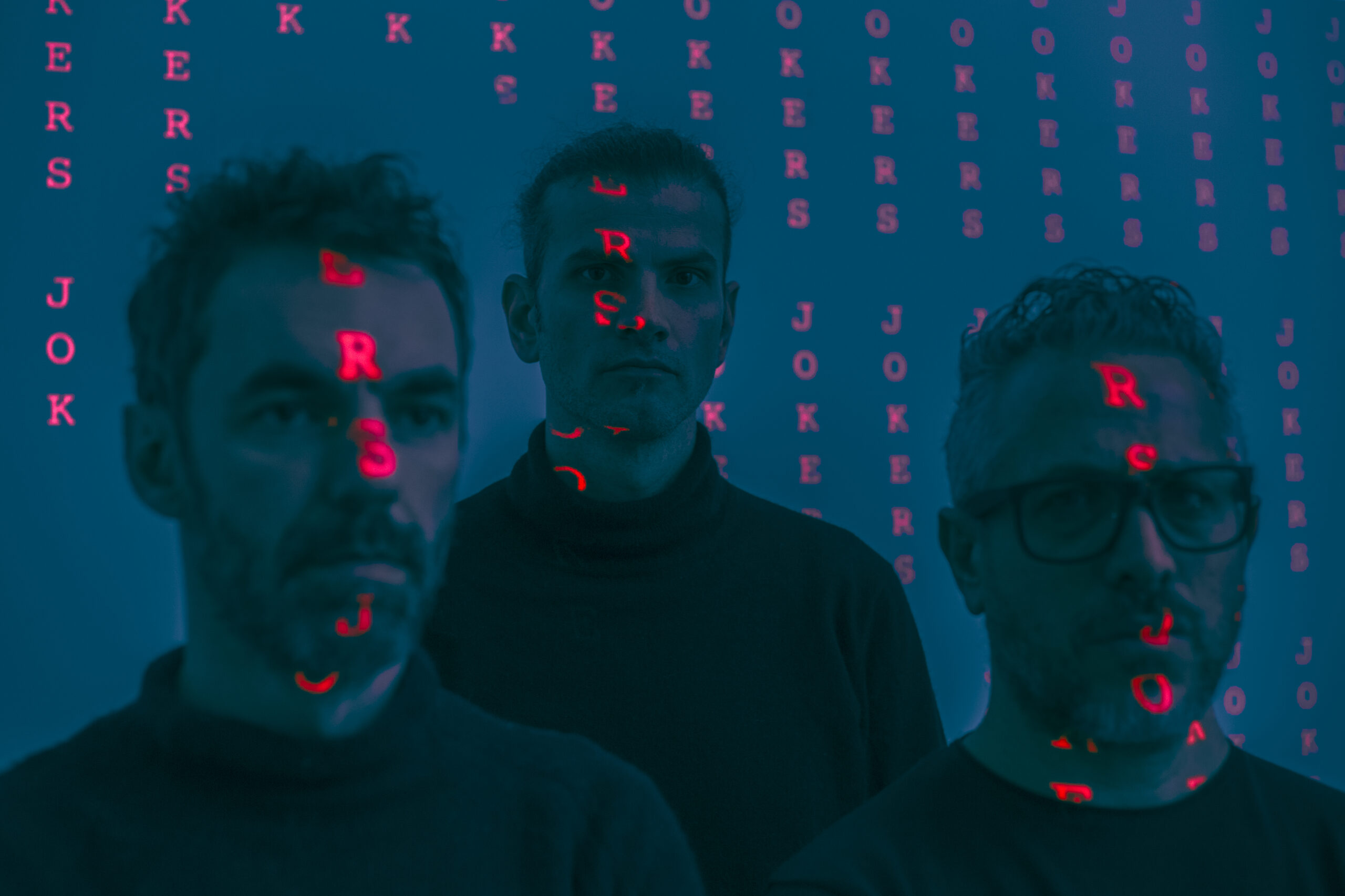
Vincent Peirani
In Western Civilization, the notion of ‘The Joker’ has its roots in medieval times, specifically in the figure of ‘The Jester,’ a pivotal character that commanded attention in the royal courts.
However, this archetype can be found in many other cultures; China has the Ziteng; India the Vidushakas; And even in ancient Native American culture there is evidence of this character.
More fascinating about this archetype, which seems to span the globe and cross the millennia, is its elusive nature. The Joker behaved like a chameleon. One moment, he could be a comedian. In another, a wise sage. It all depended on the perspective. Advanced jokers were almost like polymaths, who displayed a wide mastery of skills from juggling to satire to providing social commentary.
Drawing parallels to this rich tapestry of jesters, we should consider the French accordion virtuoso Vincent Peirani under a similar light, specifically in the realm of modern jazz. Jokers (ACT) is not only the name of Peirani’s latest band, but also their recent recording.
The extent to which Peirani consciously connects his legacy to this narrative is less significant, although he does demonstrate a healthy sense of humor (insert emoji here).
He says he created Jokers because he wanted a band of “wildcard musicians”– artists adept at thriving in an improvised environment, while also demonstrating the ability to pivot quickly. A joker musician should feel at ease playing any style or settings, can adapt at every juncture, akin to laying down a wildcard in a high-stakes poker match.
In forming his ‘Jokers’ band, Peirani sought musicians in this image, and found Israeli drum phenom Ziv Ravitz and the remarkably talented guitarist, Federico Casagrande.
Peirani, and his fellow musicians, can be whatever the music demands – a percussionist, a bassist, or a fiery soloist. All the musicians can play in those roles, but also have the ability to steal the show. However, their natural inclination is to blend in.
Like ‘The Joker,’ the joy and exuberance expressed by Peirani is palpable. However, there’s another aspect of his artistry that doesn’t get talked about enough, which aligns with the ethos of the modern joker: his penchant for musical mischief.
In the lore of Batman, the joker is labeled as an outsider, often ridiculed and ostracized by his peers. After being shunned and humiliated, the joker is pushed to the fringe, and enters a state of solitude. It’s there he discovers his voice, plots a revenge, and re-emerges stronger than ever.
If Peirani was seeking a popularity contest, playing the accordion wouldn’t have been the choice. But that fate wasn’t his own. As a kid, Peirani wanted to play the drums, but his strict father, a single parent, didn’t grant him that choice. He forced him to play the accordion. When Vincent showed an early aptitude, then his father demanded him to pick up another instrument – and, again, the drums weren’t on the menu. This time he had to play the clarinet, not exactly a magnet for popularity either.
During up his studies at the prestigious Nice Conservatory, Peirani, who was probably slightly resentful for his limited choices, was forced to choose between the two – and so he went with the accordion.
By 20 years of age, he had mostly made peace with the instrument and was ready to show off his wares. He began hanging out at late night jam sessions at Le Caveau des Oubliettes, which translates as The Forgotten Cave in Paris.
Night after night, Peirani would show up and dream of being invited on stage. He would warmly meet the other musicians at the nightclub. Then, they would see his instrument and have a compulsive reaction either in disdain or disinterest.
In Europe, the accordion may be revered but it also comes with baggage. You can be a hero in musette and chanson communities, yet equally reviled in counter culture circles. In the eyes of the jazz and rock cool cats, the accordion was something putrid or gauche.
Suddenly, all of his training and making his father happy seemed like a huge mistake, also a recipe for disaster for sustaining a jazz career. He was pushed further into isolation. And, things got quite bleak.
Then, one evening in the Forgotten Cave, a forgotten accordionist, discarded and disgruntled, had a confrontation with a local drummer. The drummer spilled a full pint of beer accidentally on Peirani’s back. The drummer felt especially bad, probably for all those nights of turning a cold shoulder. Peirani told the drummer there was only one way he’d forgive him. He must finally invite the accordionist onstage for a performance.
“It could have been that night when The Joker was born,” Peirani says with a wry smile.
For a career that started in the tubes, the accordionist quickly ascended to becoming an artistic anomaly – “Hey! Check out this crazy French accordion player who can play everything and swing heavier than Dirk Diggler!” His immense talent could not be denied. He paved his own path, propelled by the strength of his character molded from the adversity he experienced.
Somehow, the baggage of the accordion suddenly became Peirani’s secret weapon, especially with his naturally rebellious approach to it. He took glee in flipping the script. He became a cultural darling, from French jazz outcast to a cause célèbre.
The most prestigious French prizes followed, including the Victoire du Jazz. His days of playing alone quickly evaporated too. Musicians from many stripes summoned his services from Cecile McLorin Salvant, Richard Bona, to Berliner Philharmonic Orchestra, to Pat Metheny, to Stromae. He was eager to accept almost any music opportunity from the strictest classical settings to the most jazz free. Yet something remained unfulfilled. He didn’t prioritize his own art.
But then, the pandemic happened. Every artist will tell you this period was an extreme test of fortitude. But for Peirani, it may have been the opposite. He was ready for a break and chance for reinvention. And, we know ‘the Joker’ thrives in solitary when plotting his next move.
Every morning, Peirani woke up at 4:30am and locked himself inside his cellar: a newly refurbished (homemade) recording studio. He sharpened his skills specifically as a composer and producer. He discovered radical ways he could plug-in his accordion and generate new effects. He listened to his inner voices. He created brilliant compositions like “Circus of Light.” This is what happens when a joker is left alone to only serve his muse.
Instead of staying on a conventional path, studying the calcified music “the experts” told him to play, he dusted off the rock music from his childhood. He turned to distortion. Out of that creative alchemy, he brandishes a new album, kicking off with “This is the New Shit” by Marylin Manson. It’s an anthem which sets the tone, but it’s also a prank, a social commentary as he trolls stodgy jazz and classical institutions.
The band plays nods to Jeff Buckley (“Dream Brother”) but also celebrates rockers living today, not-so-quickly recognized by the intelligentsia, Bishop Briggs (“River”) and Trent Reznor (“Copy of A.”)
In this fashion, Vincent Peirani flashes his super villain costume and destabilizes the same community which reveres him. He challenges the norm and pushes musical inquiry while delivering something devilishly rocking, oftentimes chaotic, but nothing short of jubilant.
Jokers… Once again, accordionist Vincent Peirani reshuffles the cards. As a good jazz musician, he likes to venture into unexplored territories. As a good music fan and a very good musician in general, he is curious, enthusiastic, and eager to make new discoveries and find new things to listen to or play. Jokers, his first album in trio, goes even further, and elsewhere.
Vincent chose to turn for the first time to the jazz trio, a formula with such a long history that it is almost sacred, and certainly intimidating. But typically, he used that framework only to escape from it. His two accomplices, Federico Casagrande on guitar and Ziv Ravitz on drums and keyboards, both have a wealth of experience and skills, an interest in rock and electronic music, and a taste for musical hybridity.
22 Luglio | Mike Stern – Randy Bracker band feat. Dennis Chambers, Leni Stern & Chris Minh Doky
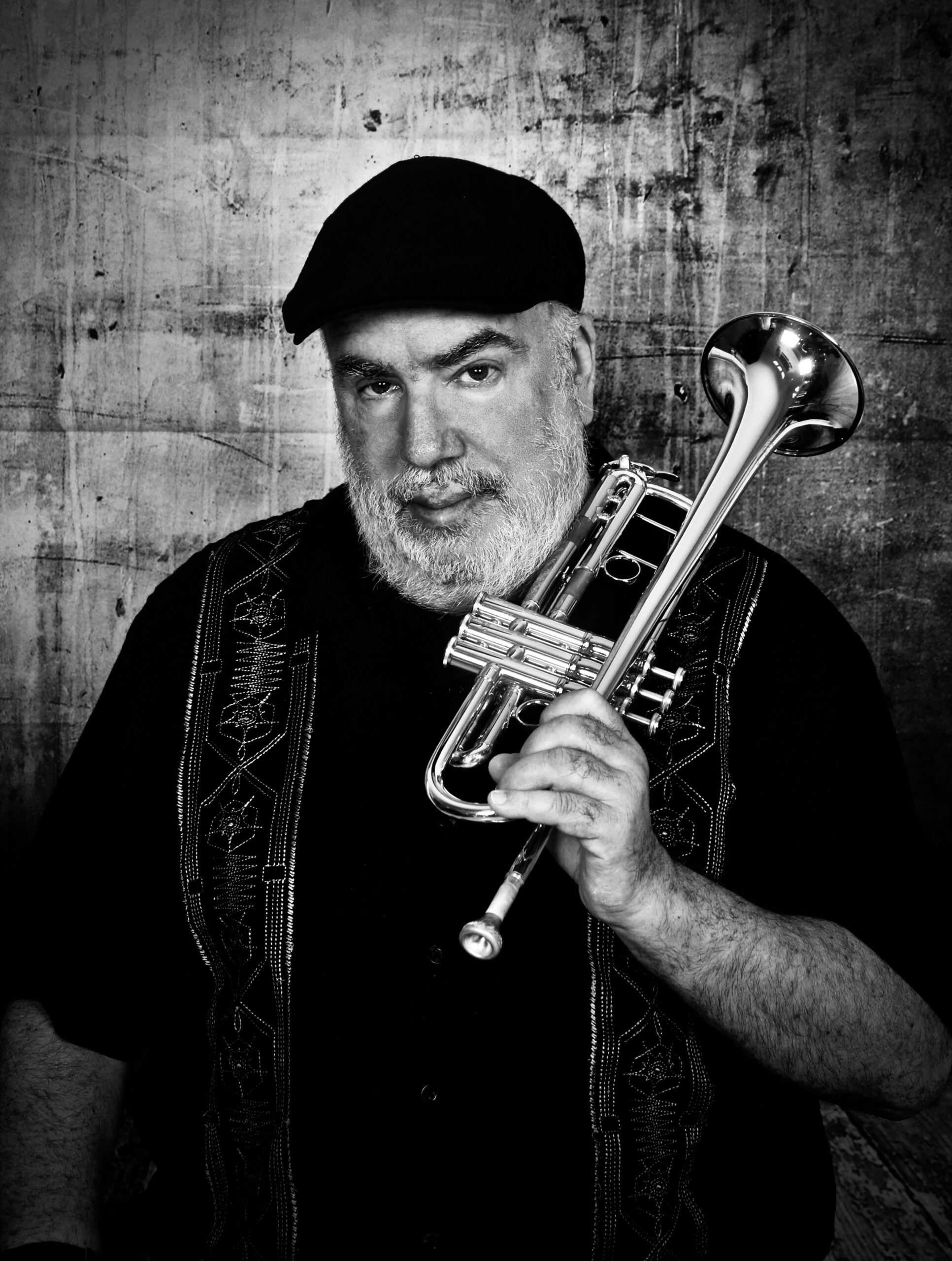
Randy Brecker, tromba
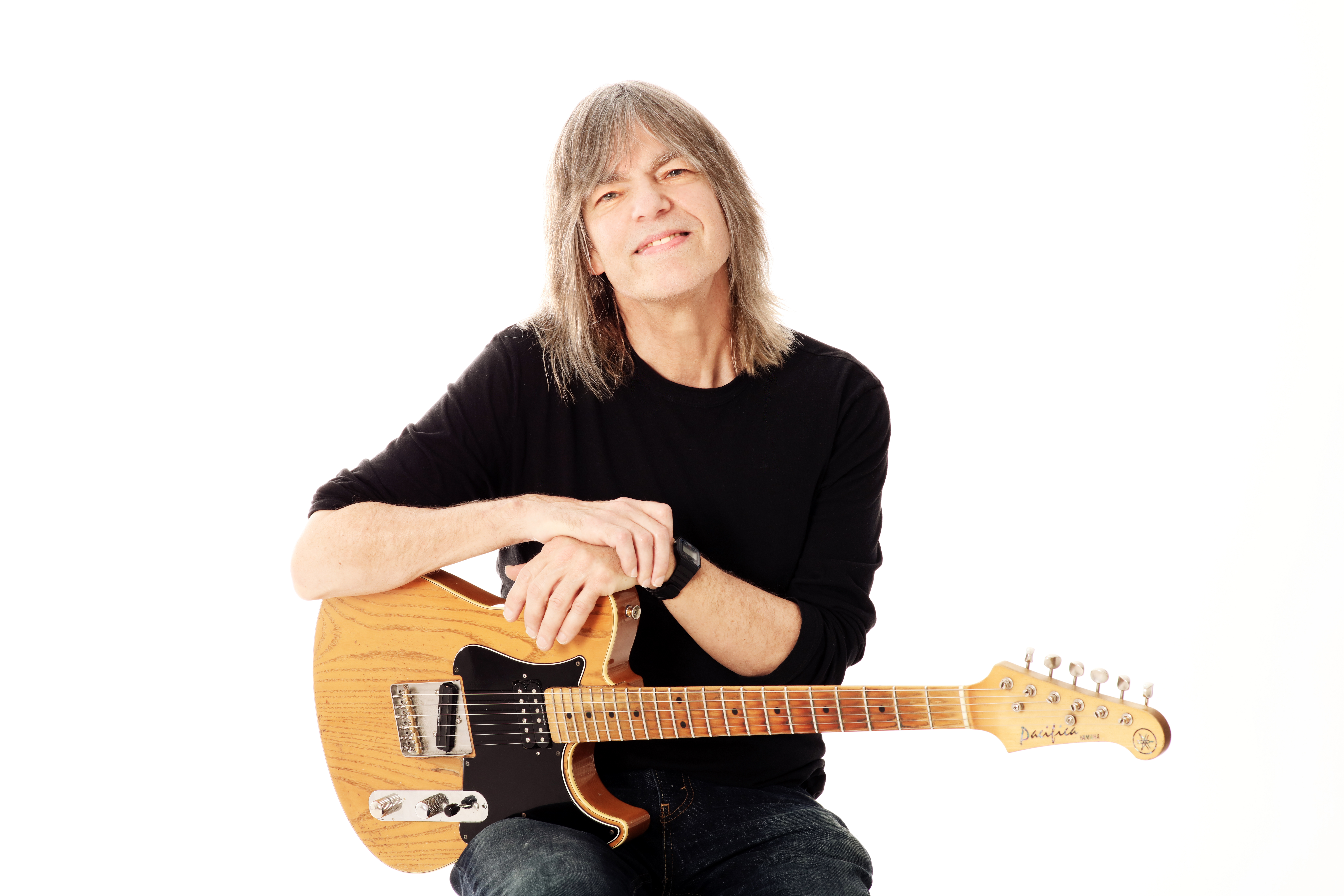
Mike Stern, chitarra elettrica
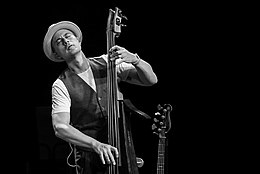
Chris Minh Doky, basso acustico ed elettrico
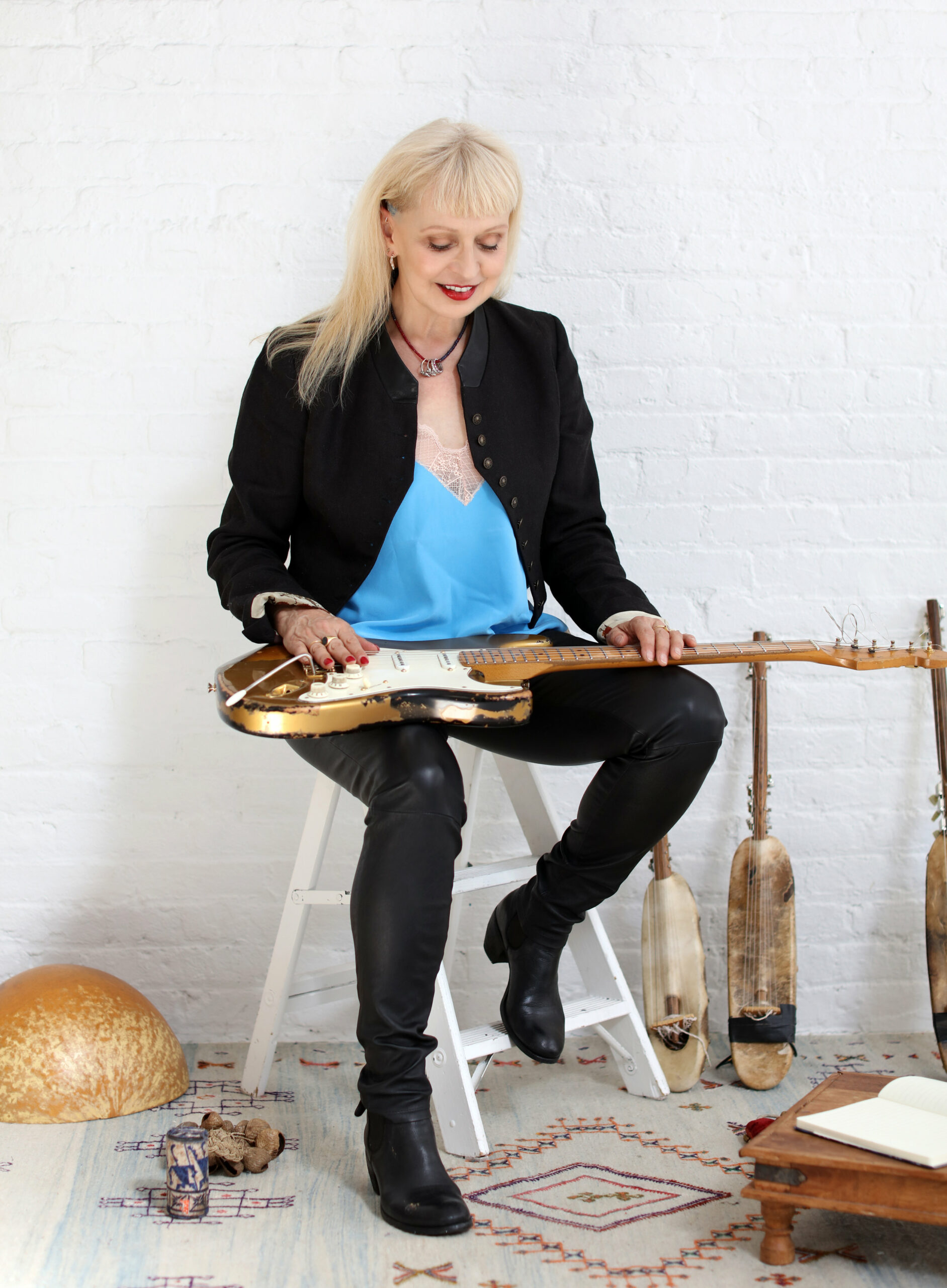
Leni Stern, chitarra elettrica | n’goni | voce
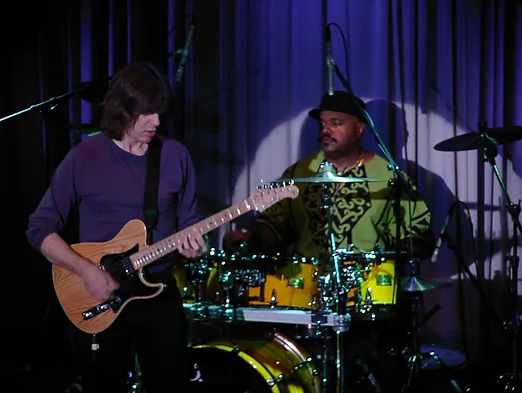
Dennis Chambers, batteria

